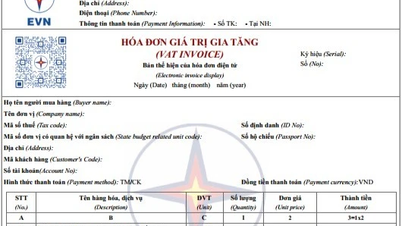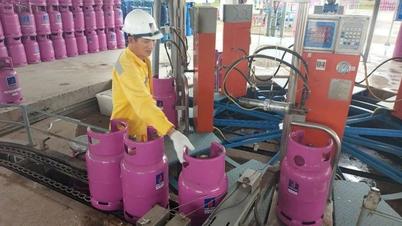The elderly are the most vulnerable group to cigarette smoke, as the older they get, the more their body functions such as breathing, circulation, and immunity decline. Elderly people who smoke or live with smokers are at high risk of developing a number of diseases, such as high blood pressure, heart attack, stroke; bronchitis, chronic obstructive pulmonary disease (COPD), lung cancer, and reduced effectiveness of treatment for chronic diseases such as diabetes, arthritis, Parkinson's, etc.

The Department of Internal Medicine, Respiratory Medicine, Endocrinology, and Internal Medicine C, Provincial General Hospital has 46 patients under treatment, including 14 patients with chronic obstructive pulmonary disease. Mr. Phung Duc Thinh in Pom Han Ward, Lao Cai City, was diagnosed with chronic obstructive pulmonary disease 3 years ago. The disease causes him to cough, produce a lot of phlegm, have difficulty breathing, and his quality of life is reduced. According to Mr. Thinh, one of the reasons he got this disease is because he used to smoke a lot. After quitting smoking, many of his symptoms improved, especially his difficulty breathing.
Dr. Nguyen Thi Dinh, Head of the Department of Internal Medicine, Respiratory Medicine, Endocrinology, Internal Medicine, shared: Chronic obstructive pulmonary disease is a common respiratory disease that can be prevented and treated, and cigarette and tobacco smoke are risk factors for the disease. The treatment regimen includes drugs and non-drug measures, in which stopping risk factors of exposure to cigarettes and tobacco is very important.
“Cut-off smoking and tobacco addiction needs to start today, in which using smoking cessation medication will help double the success rate. The three types of medication currently recommended by the World Health Organization in the treatment of tobacco addiction are nicotine replacement, bupropion and varenicline,” Dr. Dinh added.

Currently, activities to prevent and combat the harmful effects of tobacco in Lao Cai province have been widely implemented, contributing to raising public awareness, in which the health sector has taken strong action. Mr. Tran Trung Kien, a staff member on tobacco harm prevention and control, Lao Cai Provincial Center for Disease Control, said: Tobacco harm prevention and control activities in the province are currently being implemented synchronously to strengthen strict enforcement of the Law on Tobacco Harm Prevention and Control, raise awareness of the harmful effects of tobacco use, and build a smoke-free environment. In particular, we focus on training and improving the capacity to prevent and combat the harmful effects of tobacco for grassroots health workers on skills to counsel smoking cessation in the community; promote communication in many forms (through mass media, direct communication and mobile communication) to raise public awareness of the harmful effects of tobacco use.

Every year, the health centers of districts, towns and cities have promoted communication on tobacco harm prevention in schools, especially emphasizing the harmful effects of electronic cigarettes. At the same time, direct communication sessions are organized in residential areas, in highland markets and through images, billboards, and posters on the streets... From 2024 to present, 68 direct communication sessions have been organized in schools and highland markets for more than 15,000 listeners. In addition, the health sector has also established an interdisciplinary team to monitor the implementation of the Law on Tobacco Harm Prevention in agencies, units, medical facilities, factories, and enterprises...

On World No Tobacco Day (May 31) in 2025, the World Health Organization chose the theme "Exposing the false appeal" with the aim of exposing the tactics of tobacco corporations around the world in false advertising, misleading people that cigarettes are harmless to expand the consumer market, especially among young people. The World Health Organization called on countries to join hands in implementing the Communication Campaign in response to this year's World No Tobacco Day for a healthier future.
Preventing and combating the harmful effects of tobacco is not only the responsibility of the authorities but also requires practical action from each individual. The journey to quitting smoking is not easy but it is completely possible if we have determination. Let's act together today to protect our health and contribute to building a smoke-free society.
To protect the elderly, women and children from the harmful effects of tobacco, the role of support from family and community is extremely important, helping to change the smoking habits of relatives, such as: encouraging and supporting relatives to quit smoking by talking gently, taking them to the doctor, consulting, using supportive drugs if necessary; not smoking in the house, keeping the common living space clean; building a model of "Smoke-free family", "Smoke-free residential area"...
Source: https://baolaocai.vn/hanh-dong-ngay-hom-nay-post402627.html



























































































Comment (0)